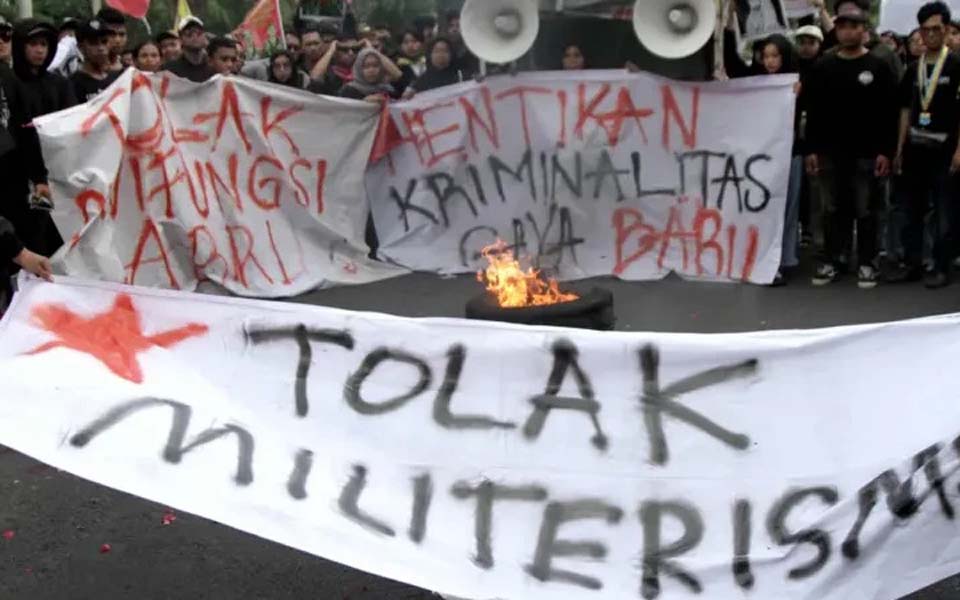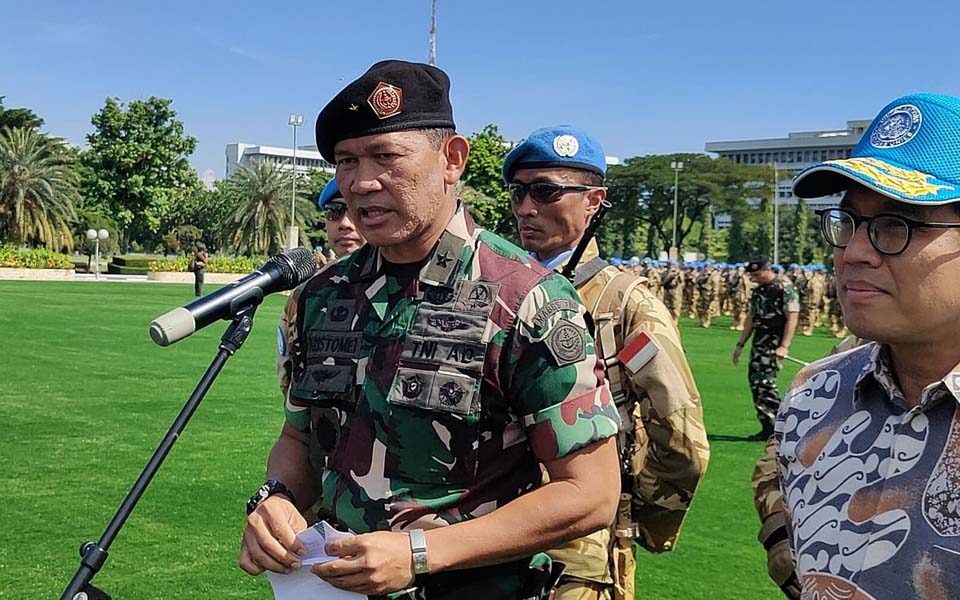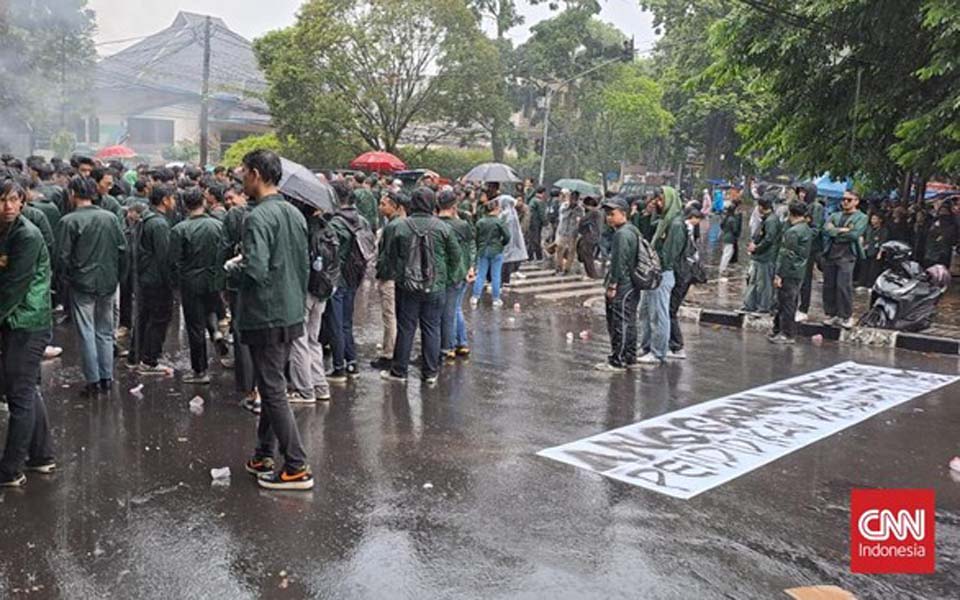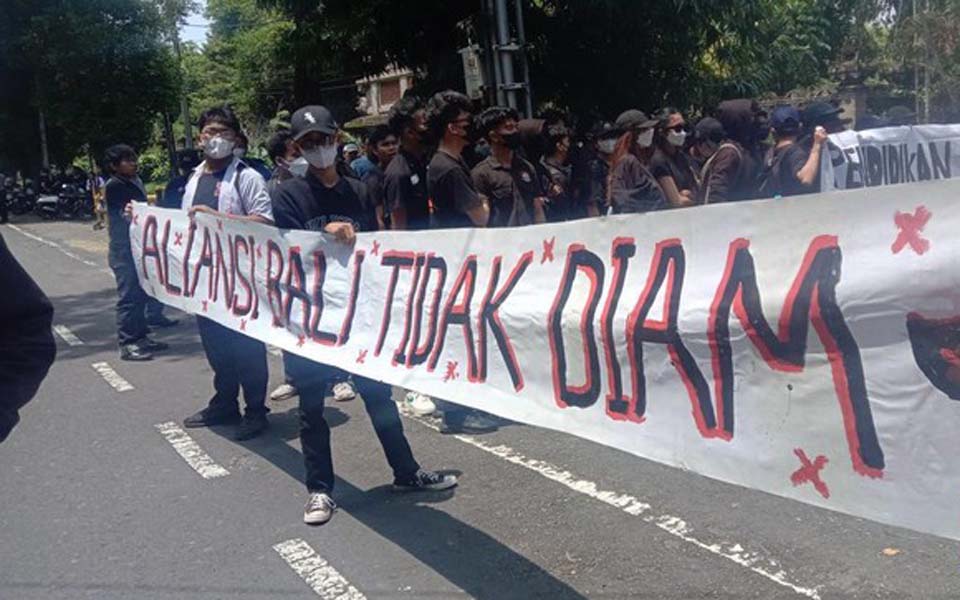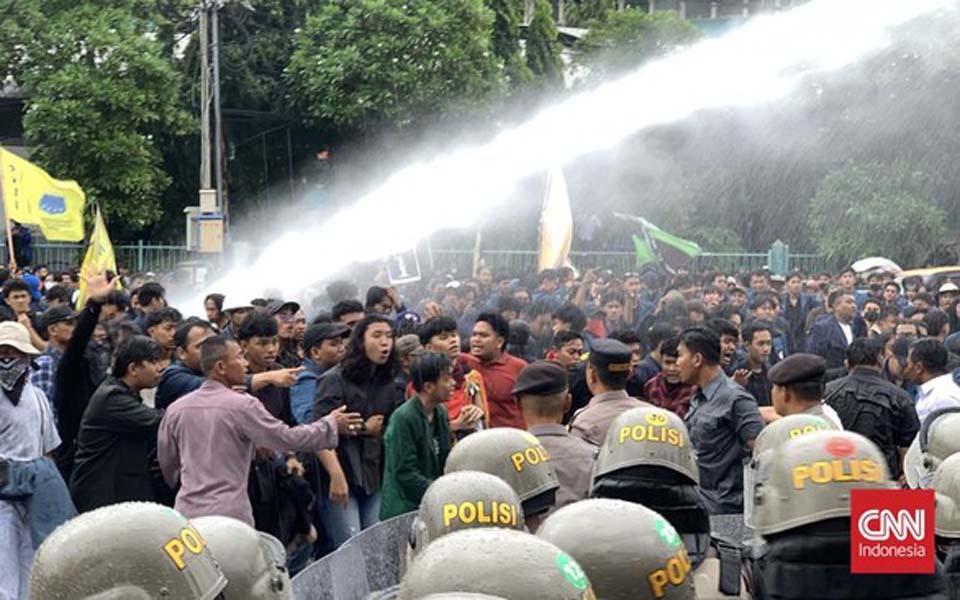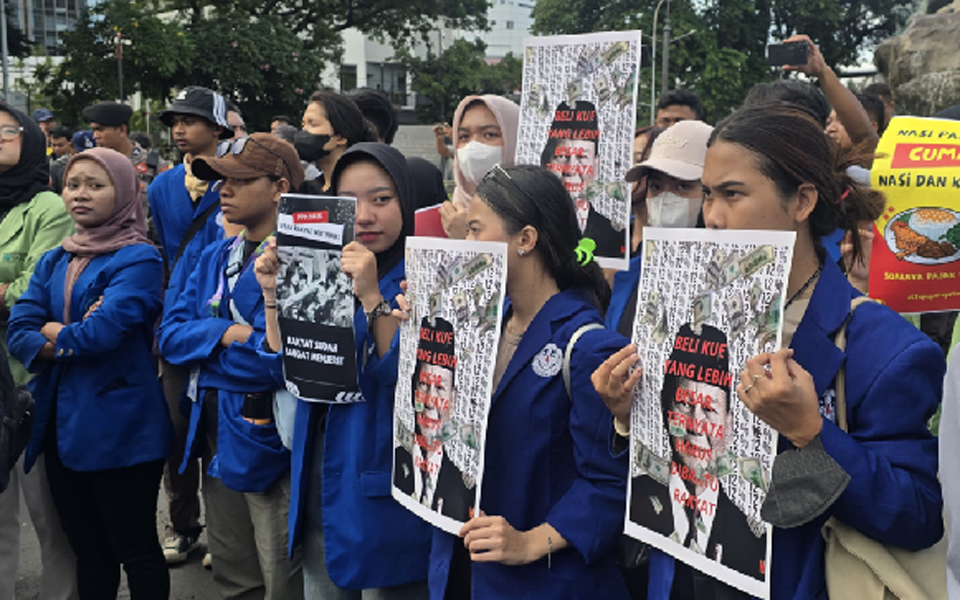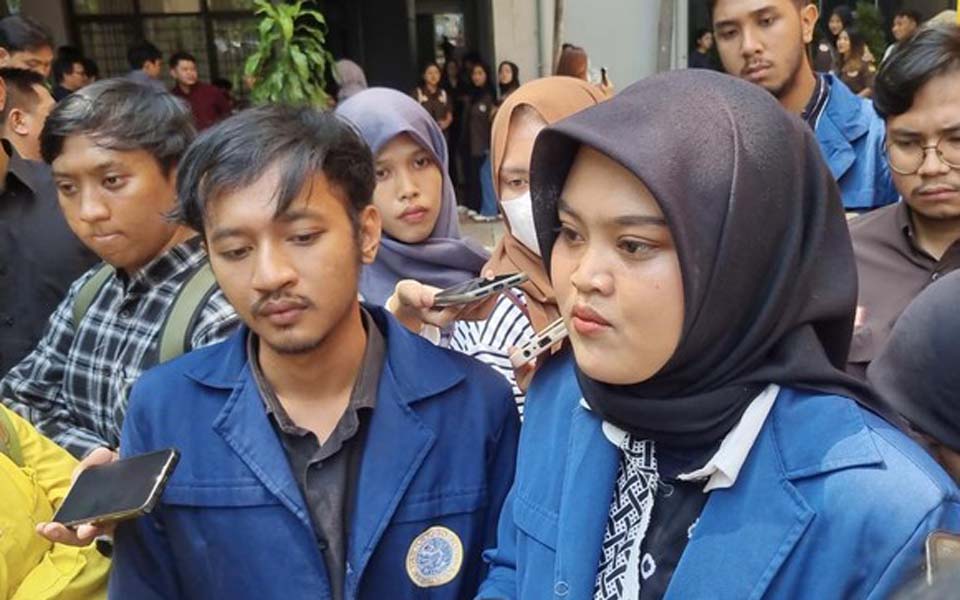Jakarta – The current religious discourse among student groups at a number of state tertiary institutions (PTN) is largely dominated by Islamic study groups (tarbiyah) and former members of the radical Islamic organisation Hizbut Tahrir Indonesia (HTI) which after being banned by the government has transformed itself into a tarbiyah activist movement.
This was one of the key findings of research conducted by the Setara Institute for Democracy and Peace which was outlined by Setara Research Director Halili during a discussion at the Jakarta Tamarin Ibis Hotel in Central Jakarta on Friday May 31.
The Setara study was carried out at 10 PTN between February and April 2019 covering the University of Indonesia (UI), the Syarief Hidayatullah State Islamic University (UIN), the Bandung Institute of Technology (ITB), the Sunan Gunung Djati Bandung UIN, the Bogor Agricultural Institute (IPB) the Gajah Mada University (UGM), the Yogyakarta State University (UNY), the Brawijaya University (Unibraw), the Matram University (Unram) and the Airlangga University (Unair).
The tarbiyah movement itself is a proselytizing (dakwah) movement which is often found on campuses in Indonesia.
Halili said there were three dominant kinds of discourse being developed by exclusive Islamic groups in student circles on PTNs, particularly at UI, ITB, IPB and the Syarif Hidayatullah UIN.
The first is related to the Islamic community’s obligation to uphold the teachings and values of Islam in social life. The narrative being developed is based on a view that the salvation of society can only be achieved if society devoutly follows God’s orders as conveyed through the Koran and the hadith (the Prophet Muhammad’s sayings and practices).
The second central discourse is related to the threat to Islam from its enemies. The narrative being reproduced is that the Islamic community needs to unite to resist oppression against Islam that continues to be developed by kafirs (infidels, unbelievers, non-Muslims) or the enemies of Islam.
The kafirs and other enemies represent an alliance of Christian, Zionist, imperialist and Western capitalist groups along with liberal and secular organisations. This discourse uses the global crimes against Palestine as ammunition which is constantly reproduced.
The third discourse conveys the view that the current era is a war of ideas (ghazwul fikr). The narrative that is emphasised is that Islam is being conquered by the West through the control of ideas and culture.
“The combination of these three narratives has constructed a solid community which is exclusive, vigilant, suspicious, hostile and that closes itself off from other groups”, said Halili.
He said that they also discovered another key finding that the religious movements among student groups at several PTNs is almost entirely dominated by the tarbiyah movement.
This movement also maintains its domination by means of controlling cross-campus student organisations, large campus mosques, prayer room (musalla) facilities and student dormitories.
According to Halili, this creates a political dynamic among students on campus which tends to be exclusive, anti-government, against non-Muslim groups and even against Muslims outside of their own group.
Among several student organisations and institutions, he continued, a position has developed that non-Muslim students should not be allowed to lead organisations or cross-campus student bodies.
“They don’t agree with non-Muslim leaders in various dimensions of student life on campus. This does of course represent the fruit of exclusive religious indoctrination derived from religious ideas which are textual and scriptural in character”, said Halili, referring to the literal reading of the Koran and Muhammad’s sayings.
Then, said Halili, the control of cross-campus organisations by exclusive religious groups campus is achieved by a variety of political strategies which are justified religiously (menghalalkan) by all kinds of means.
Halili cited one of these as manipulating student election organising committee regulations so that only one candidate figure emerges for the leadership of student executive bodies (BEM), namely from their group.
He said that these exclusive religious movement groups also politicise regulations by supporting requirements which are difficult for prospective candidates from other groups to meet.
“They envisage student political contests as a daarul harb (battle field) so it becomes ‘halal’ [sanctioned under Islamic law] to use lies, manipulation and fraudulent strategies”, he said.
Halili said that the reproduction of this discourse and the exclusive Islamicists movement is also done by controlling campus mosques.
There are three general patterns of control used by these exclusive Islamicists groups, namely using large campus mosques as the principal headquarters for the cadreisation and taking control of strategic networks.
This is then followed by taking complete control over large campus mosques, musalla facilities and student dormitories. The final pattern turns large mosques on campus into “central hubs” which link up and network with “neighbouring” mosques on and around campus.
According to Halili these exclusive Islamic groups use various mediums to spread this Islamicists discourse including through study groups, khotbah jum’at (sermons at Friday prayers), liqo (meetings), daurah (Koranic study groups), halaqoh (national gatherings of Islamic clerics) and routine membership cadreisation.
In addition to this, continued Halili, the dissemination of this religious discourse is also done through book readings, magazines and Friday prayer bulletins. The Salafi Wahabi group has the Al Hujjah Bulletin and the HTI has the Kaffah Bulletin, thousands of copies of which are distributed every Friday morning.
“These bulletins are usually printed on mosque verandas”, he said. (mts/wis)
[Translated by James Balowski. The original title of the article was “Riset: Tarbiyah dan Eks HTI ‘Kuasai’ Wacana Agama di PTN”.]






